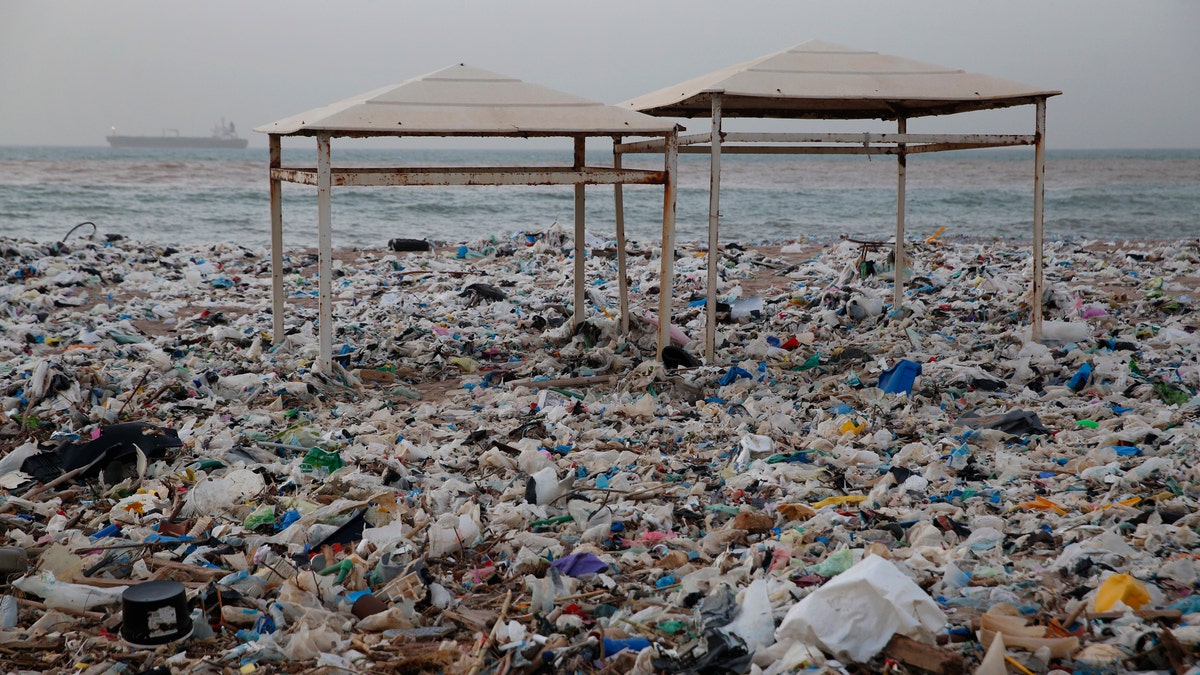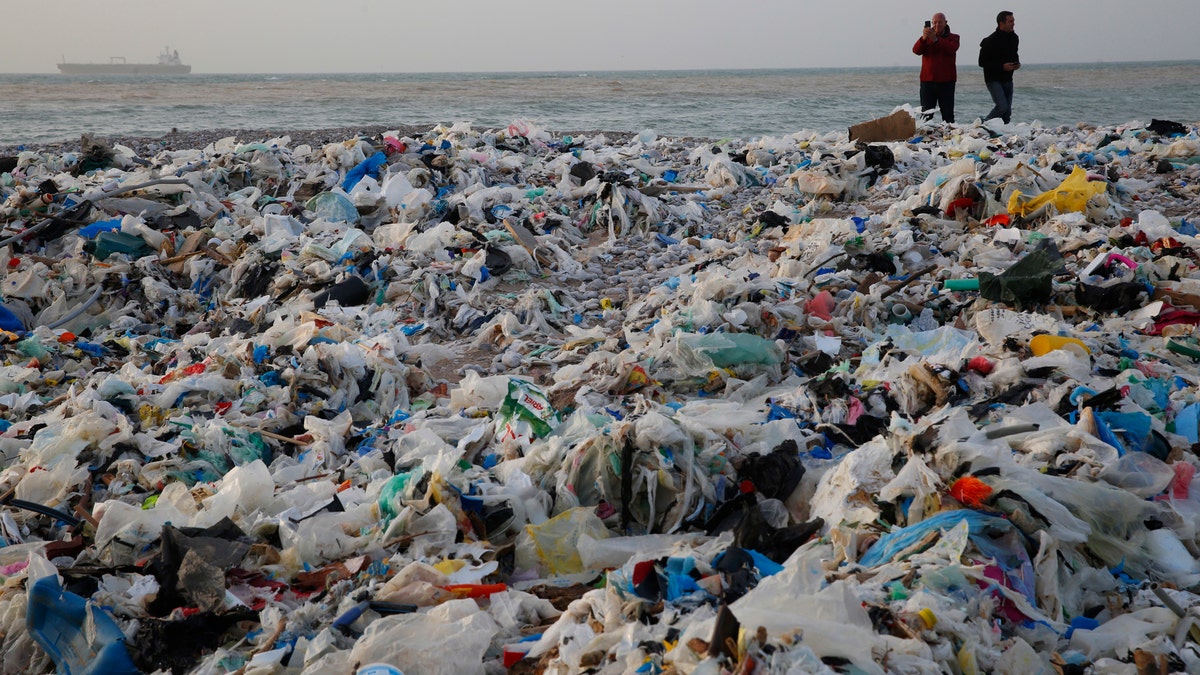
In this Monday Jan. 22, 2018, photo, two tents sit in piles of garbage covering the shore days after an extended storm battered the Mediterranean country at the Zouq Mosbeh costal town north of Beirut, Lebanon. Environmentalists say a winter storm has pushed a wave of trash onto the Lebanese shore outside Beirut, stirring outrage over a waste management crisis that has choked the country since 2015. (AP Photo/Hussein Malla)
Incredible images show a flood of trash on a beach in Lebanon that has sparked outrage in the country.
The beach at Zouq Mosbeh just north of the country’s capital Beirut was covered with waste on Monday following a powerful winter storm, marking the latest chapter in the country’s ongoing waste management crisis.
The scenes were a national embarrassment for a country that once prided itself on its sparkling Mediterranean coastline but cannot wean itself off the convenience of throwing its trash into the sea.
ACTIVISTS WANT OCEAN GARBAGE PATCH TO BE NEW COUNTRY
Prime Minister Saad Hariri ordered an immediate clean-up of Zouq Mosbeh beach, but the futility of it was immediately apparent as rough waves carried in even more trash on Tuesday.

In this Monday, Jan. 22, 2018, photo, a man takes photos of piles of garbage washed on shore after an extended storm battered the Mediterranean country at the Zouq Mosbeh costal town, north of Beirut, Lebanon. Environmentalists say a winter storm has pushed a wave of trash onto the Lebanese shore outside Beirut, stirring outrage over a waste management crisis that has choked the country since 2015. (AP Photo/Hussein Malla)
"The sea is regurgitating our trash," said Joslin Kehdy, the head of environmental group Recycle Lebanon, which has arranged an annual cleanup of the beach every year since 2015.
In a Facebook post Tuesday, Recycle Lebanon noted that the garbage flood on the beach is an annual occurrence as a result of circulating ocean currents. “More plastic bags were washed up compared to plastic bottles the year before,” it explained, while calling for an end to coastal landfills.
SEWER MONSTER: DISGUSTING 'FATBERG' LONGER THAN TWO SOCCER FIELDS CLOGS LONDON SEWER
"The people are willing and able to sort and recycle, and have a strong desire to make a difference; however, we need the government to support rather than hinder this movement legislatively," added Recycle Lebanon, in its Facebook post. "They are currently passing laws that are detrimental to Lebanon’s environmental health such as the extension of the coastal landfills and the implementation of incinerators rather than introducing policies that boost the recycling sector and passing laws that reduce the single use plastic production."
Paul Abi Rached, a local environmentalist who spearheaded a campaign to overhaul the government's waste policies three years ago, said that he was not surprised by the flood of trash. "We said it was not possible to keep dumping in the water. We knew we were going to get here," he explained.
Few issues have driven a wedge between the Lebanese and their leaders like garbage. Lebanon has long been plagued by daily water and electricity outages, but it was not until the trash started going uncollected in Beirut that despair erupted into a wave of protests in 2015.
CHERNOBYL IS GETTING A NEW LEASE ON LIFE - THANKS TO SOLAR POWER
A fleet of heavy machinery has been working the coastline east of Beirut since 2017, pouring trash into the Mediterranean at a land reclamation site at Dbayeh.
Officials say they are doing nothing untoward, and that the landfills they operate are done to technical specifications.
Abi Rached said rough waves had broken down a faulty retaining wall around a coastal dump just east of Beirut, pouring trash into the sea.
The garbage flood has once again thrust Lebanon into the environmental spotlight. Last year, a report by Human Rights Watch urged authorities in Lebanon to end open burning of waste across the country, citing serious health risks for nearby residents.
Environmentalists have also warned that Lebanon’s trash problem spells bad news for pollution in the Mediterranean Sea. In 2015, scientists estimated that between 1,000 and 3,000 tons of plastic are floating in the Mediterranean.
The Associated Press contributed to this article.








































